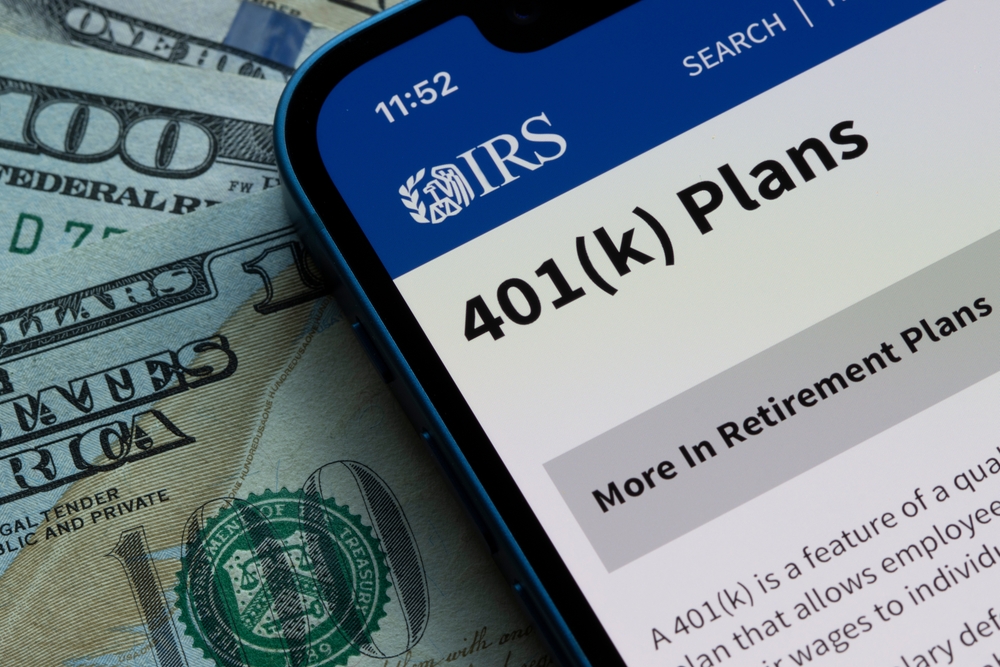Yes, You Can Recover
Taking out a 401(k) loan to buy a car might’ve seemed like a quick solution, but now you're wondering if it was the right move. The truth is, borrowing from your retirement comes with risks that aren’t obvious until you're deep into the repayment process. But don’t panic—you’re not doomed. You’re definitely not the first person to make this move, and you won’t be the last. The key is understanding the consequences and building a smart recovery plan.

Understanding The 401(k) Loan Basics
A 401(k) loan lets you borrow from your own retirement savings—usually up to 50% of your vested balance, or $50,000, whichever is less. You repay it with interest, but the interest goes back into your own account. Sounds harmless, right? But what’s often overlooked is the lost investment growth while that money is out of your account. It’s a short-term fix with a long-term cost.
Why People Use 401(k) Loans To Buy Cars
Cars are expensive, and traditional auto loans might come with high interest rates or strict credit requirements. A 401(k) loan feels convenient and fast, with no credit check and “interest” that goes back into your pocket. But it’s easy to forget the long-term cost to your retirement future.
What’s The Catch With Using It For A Car?
Unlike a home purchase, buying a car isn’t an investment—it depreciates the second you drive it off the lot. Meanwhile, that money could’ve stayed in your 401(k) growing with compound interest. Essentially, you’re trading long-term wealth for short-term wheels. It’s a classic case of sacrificing future stability for current convenience. And the opportunity cost is usually bigger than people expect.
What Happens If You Leave Your Job?
Here’s the kicker: if you leave your job (or get laid off), the full loan usually becomes due within a short window—often 60 days. If you can’t pay it back, it’s treated as a withdrawal. That means you’ll owe income tax and a 10% early withdrawal penalty if you’re under 59½. This can turn a car loan into a surprise tax disaster. Always consider your job stability before touching your 401(k).
Did You Make a Big Mistake? Maybe…But Maybe Not
Taking a 401(k) loan isn’t automatically financial doom. The real damage depends on how quickly you repay it, how much you took, and whether it derailed your retirement contributions. Many people recover, but it takes intention and discipline. If you start fixing things now, you can still retire comfortably.
Step One: Start Contributing Again ASAP
If you paused your retirement contributions while repaying the loan, try to restart them as soon as you can. Even if it’s just 1% or 2%, you’re rebuilding the habit and getting back on track. Remember: lost time in the market is hard to make up later. Many employers match contributions, and missing out on that is like leaving free money on the table. Get back in the game, even slowly.
Step Two: Create A Debt Payoff Strategy
Treat your 401(k) loan like any other debt. Budget monthly payments. If you can afford to accelerate repayment, even a little, that's money back into your retirement account faster.
The less time that money is out of the market, the smaller the impact on your long-term savings.
Step Three: Increase Emergency Savings
You used your retirement account like a backup fund, which is risky. Build up an emergency savings stash so you never have to dip into your 401(k) again. A separate fund (even $1,000 to start) gives you peace of mind for future car repairs or job changes. Most financial experts recommend at least 3–6 months’ worth of expenses. Having cash on hand prevents future desperate moves.
 Photo By: Kaboompics.com, Pexels
Photo By: Kaboompics.com, Pexels
Should You Refinance The Car Instead?
If you’re still paying off the vehicle, refinancing your auto loan might give you a lower rate and free up cash to repay the 401(k) loan quicker. Shop around for lenders with competitive rates. The sooner your retirement account is whole again, the better. Lower car payments could also help you redirect money toward savings or investments. It’s worth comparing offers, especially if your credit has improved.
How To Offset The Lost Growth
Let’s be honest: the biggest cost isn’t the loan itself, it’s the missed growth. One way to compensate? Increase your retirement contributions once the loan is paid off. Even a 2–3% bump can help you make up for time lost.
 Photo By: Kaboompics.com, Pexels
Photo By: Kaboompics.com, Pexels
Avoid The Trap Of Re-Borrowing
Some plans allow you to take out another loan once the first one is paid off. Resist the temptation. Retirement funds are not piggy banks. If borrowing becomes a habit, it can seriously erode your long-term financial security. Break the cycle before it becomes your go-to solution.
Learn From The Experience
Use this as a financial turning point. Reflect on why you took the loan. Was it lack of savings? Credit issues? Impulsiveness? Understanding the root cause can help you avoid repeating the same mistake in the future.
Did You Actually Save Money Compared To A Car Loan?
Sometimes, yes—but it's rarely as big a win as it seems. You might’ve skipped car loan interest, but you also missed out on market returns. Even a 6%–8% average annual return lost over five years can cost you thousands in retirement. You traded one cost for another—just less visible. Doing the math helps put it all in perspective.
What If You Default On The Loan?
If you don’t repay, the outstanding amount is treated as a taxable distribution. That means you’ll owe income taxes plus a 10% penalty if you’re under age 59½. Not only does that shrink your retirement savings, it could also trigger a surprise tax bill next April. Worse still, defaulting can create long-term damage to your financial plan. Do everything you can to avoid it.
 Photo By: Kaboompics.com, Pexels
Photo By: Kaboompics.com, Pexels
Use This Moment To Reassess Your Financial Priorities
This is a great time to revisit your financial goals. Do you want to retire early? Buy a home? Travel in retirement? Seeing the bigger picture might motivate you to get back on track and treat your 401(k) with the respect it deserves.
Talk To A Financial Advisor (Even Just Once)
You don’t need to be rich to get good advice. Even a single meeting with a fee-based advisor can help you map out a recovery strategy. Look for someone who’s a fiduciary—they’re legally required to act in your best interest.
Many employers even offer free sessions through workplace benefits. Don’t leave expert help unused.
Don’t Beat Yourself Up
Everyone makes money mistakes. The important thing is not pretending it didn’t happen—it’s learning and taking action. You’re already ahead of the curve just by asking, “How can I recover?” Self-compassion leads to smarter decisions. Don’t let guilt stall your progress.
What If You’re Still Considering A 401(k) Loan For A Car?
Stop and explore every alternative first. Look at credit unions, personal loans, even gently used cars you can pay cash for. Borrowing against your future self is rarely worth it for a depreciating asset. There’s almost always a better way to get where you need to go—literally and financially.
You Can Recover But You Have To Be Intentional
It takes planning, patience, and new habits to bounce back. Start with small changes: resume contributions, boost savings, track spending. Before long, you’ll be back on a stronger financial footing, and a little wiser for the ride. You didn’t ruin your retirement—you just hit a bump. Now it’s time to steer in a better direction.
You May Also Like:
I'm 70, Still Working, And My 401(k) Is Empty. Is It Too Late To Start Saving?
I took out a HELOC to renovate. Now interest rates spiked and I can't pay. What now?























